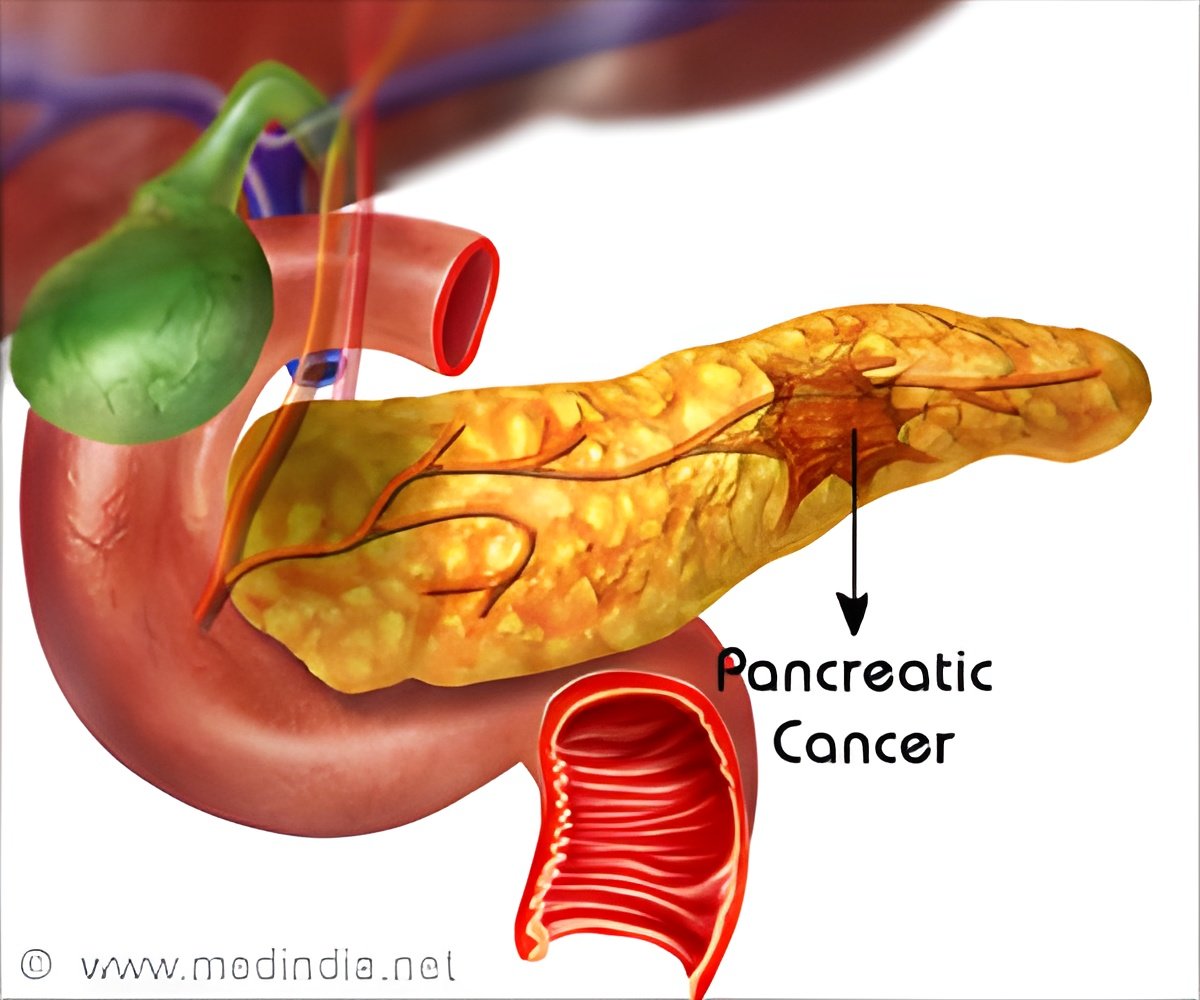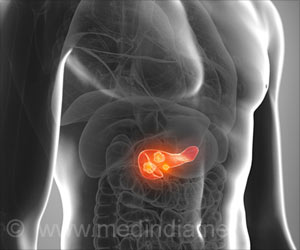Researchers aimed to detect autoantibodies against TA-MUC1, a key indicator of pancreatic cancer. Early pancreatic cancer detection could be a game changer.

Detection of Tumor-Associated Autoantibodies in the Sera of Pancreatic Cancer Patients Using Engineered MUC1 Glycopeptide Nanoparticle Probes
Go to source). Tumors produce certain proteins (tumor-associated antigens) that draw the attention of our constantly “patrolling” immune system and trigger an immune response. As a consequence, antibodies directed against the tumors (tumor-associated autoantibodies) are formed, circulating in the blood at very early stages of the disease—which makes them useful for early detection.
‘#Pancreaticcancer is the 3rd leading cause of cancer-related deaths in the US. But there’s hope! A new breakthrough could lead to much earlier #cancer detection.’





Harnessing the Body's Immune Response for Early Pancreatic Cancer Detection
An international team led by Roberto Fiammengo and Giovanni Malerba at the University of Verona (Italy) as well as Alfredo Martínez at the Center for Biomedical Research of La Rioja (Logroño, Spain) and Francisco Corzana at the Universidad de La Rioja , has now developed an approach to diagnostic testing for pancreatic cancer that is based on the detection of such special tumor-associated autoantibodies.They chose to use autoantibodies directed against the tumor-associated form of mucin-1 (TA-MUC1). Mucin-1 is a heavily glycosylated protein (a protein with sugar components) that occurs, for example, in glandular tissue. In many types of tumors, including pancreatic cancer, it is found in significantly elevated concentrations. In addition, the pattern of glycosylation is different from the normal form.
Based on structural analyses and computer simulations of known antibodies against TA-MUC1 (SM3 and 5E5), the team designed a collection of synthetic glycopeptides that mimic different segments (epitopes) of TA-MUC1. They also made unnatural modifications to increase the chances of identifying autoantibody subgroups indicative of the disease. The team immobilized these model antigens on gold nanoparticles achieving probes suitable for a serological assay (dot-blot assay).
The diagnostic assay was validated with real samples from patients with pancreatic cancer and a healthy control group. Some of the nanoparticle probes could differentiate very well between samples from diseased and healthy individuals demonstrating they detected tumor associated autoantibodies. Notably, these specific autoantibodies displayed significantly better correct positive/false positive ratios than current clinical biomarkers for pancreatic cancer.
Probes with smaller glycopeptide antigens that correspond to only a single epitope, gave better results than larger probes that mimic multiple epitopes—an advantage for easier synthetic production. A short glycopeptide with an unnatural modification to its sugar component was found to be particularly effective for the detection of discriminating autoantibodies.
Advertisement
Reference:
- Detection of Tumor-Associated Autoantibodies in the Sera of Pancreatic Cancer Patients Using Engineered MUC1 Glycopeptide Nanoparticle Probes - (https://onlinelibrary.wiley.com/doi/10.1002/anie.202407131t)
Source-Eurekalert















